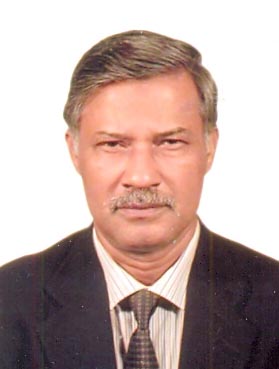
Staff Reporter :
Like different NGOs and voluntary organizations, many individuals are also distributing relief materials, including food and life saving drugs, to the displaced Rohingya nationals at Ukhiya’s Balukhali and Kutupalong camps.
In the latest effort, an individual social worker Engr SA Rashed distributed a huge quantity of relief materials to the Rohingya children under five years of age.
It was not so easy for him to collect such a huge quantity of relief materials. To achieve the goal, Engr Rashed had gone through hard labour for many days. Later, Brigadier General Bakir and some other Major ranking army officers extended their helping hands for a well-coordinated distribution of the relief materials.
“I got support from different sources, specially friends and well-wishers, to collect a huge quantity of relief materials. Some materials I’ve received as kind gifts while some I’ve bought from the stores in discount or nominal prices. I also got a good quantity of cash for various expenses, including conveyance,” Engr SA Rashed said while he came to The New Nation office on Friday.
Engr SA Rashed was determined to distribute the relief among Rohingya children under 5 seeing their distress in the television reports ran by different channels. “One day, while I was watching television, I saw a large number of tortured Rohingya children, women and men who were crossing a muddy canal. Of them, a 5-6 year old boy was coming holding his mother’s hand. Suddenly, the boy was separated from his mother and fell on the mud….The boy was crying. It touched my heart,” he said. Meanwhile, a UNICEF report released recently said that 12,000 children left Myanmar weekly soon after military crackdown in August 25. “Many Rohingya refugee children in Bangladesh have witnessed atrocities in Myanmar no child should ever see and all have suffered tremendous loss. For them, basic services such as food, safe water and sanitation are in short supply,” UNICEF Executive Director Anthony Lake said recently.
The children fled from Myanmar’s Rakhine State into Bangladesh have reported experiencing or witnessing brutal acts of violence – accounts which point to grave human rights violations. According to the UNICEF, almost 60 per cent of the refugees are children while many have become separated from their families or fled on their own.
Echoing the same, UNICEF Bangladesh Representative, Edouard Beigbeder, recently said: “The appalling dangers that children here face are plain to see. Living in the open, with food, safe water and sanitation in desperately short supply, the risk of waterborne and other diseases is impossible to ignore.”
Out of nearly 12 lakh Rohingya people – including new arrivals, about 720,000 are children. Of them, an estimated 450,000 Rohingya children aged 4-18 years old need education services, 270,000 of them from among the new arrivals.
Nearly 17,000 children with severe acute malnutrition need inpatient and outpatient treatment and need nutritious supplementary food, according to officials.

